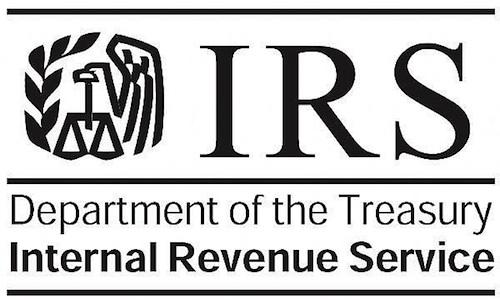The IRS is continuing to ramp up its efforts to combat refund fraud due to identity theft. One such effort is to send identity verification letters to some taxpayers. While not all taxpayers receive one, they are not rare, nor do they mean you did something wrong.
The IRS sends these identity verification letters to taxpayers after receiving an e-filed/paper-filed tax return, before processing a refund. Sometimes this is to randomly verify identification as a measure to prevent identity theft and to test and strengthen IRS internal controls. In other instances, this is to verify the identity as a duplicate tax return might have been filed using the same Social Security number.
Do not panic! The first step on receipt of the notice or letter received from the IRS is to read the letter carefully, as it contains valuable information like what documents might be needed to verify the identity, whom to contact, where to call, or how to respond. A tax professional can also assist you in handling the identity verification request.
The IRS will NEVER call you or send you an email to seek your identity. Any official correspondence from the IRS will begin with official documents that will arrive via the U.S. Postal Service.
If you have received 5071C, 5747C, 5447C letters, then you can use the ID Verify tool on the IRS website, https://www.irs.gov/identity-theft-fraud-scams/identity-verification-for-irs-letter-recipients
The following information is required to verify your identity:
- Your personal account number from a:
- Credit card
- Mortgage
- Student loan
- Home equity loan or home equity line of credit
- Car loan
2. A mobile number associated with your name
3. Your 5071C letter, 5747C letter or 5447C letter
4. The income tax return (form 1040,1040-PR, 1040-NR, 1040-SR, etc.) for the year shown on the letter
Note: A Form W-2 or 1099 is not an income tax return
You must also have your mailing address from your previous year’s tax return
If you received a 4883C Letter then you might not be able to use this tool, in which case you will have to call the IRS and have the above information required to verify the identity readily available.
Your authorized representative, like CPA or attorney, can call the IRS on your behalf. Use Form 2848 to authorize. But unlike other IRS letters or notices, this issue cannot be resolved without the taxpayer’s presence. While on a call with the IRS, other than the above information, the IRS may also request other personal information like your mother’s maiden name, present or previous car model, etc., which your CPA might not be familiar with. Either you or your authorized representative can call the IRS and then this can be turned into a conference call.
The call to the IRS is a one-shot deal. If you or your authorized representative is unable to verify your identification, then you have to go in person to the IRS office and provide the information required to verify your identity along with two IDs. One will be a photo ID and the second can be one of the following documents:
- birth certificate,
- social security card
- other proof
In case of married filing jointly returns, both taxpayer and spouse IDs have to be provided. You can also call the IRS and request a fax number where you can send all the documents, including your photo and other ID forms. Double-check on the documents to be sent to make sure it matches the notice to avoid further delays.
Though done with the best intention by the IRS, this whole process can be frustrating and may take 30 to 60 days to resolve. Expect longer processing times due to the pandemic.
To avoid such instances in the future, you can voluntarily request for ID PINS from the IRS starting January 2021. Previously, this was available only to taxpayers/spouses who had ID theft issues. The PIN prevents others from filing tax returns on your behalf. Taxpayers have to enter this PIN while electronically filing the tax return. This is valid only for tax returns filed in that year. For example, if you are filing a 2019 return in 2021, this ID PIN is valid for 2019 and 2020 tax returns.
A new PIN has to be requested every year. Caution- do not lose the ID PIN as it causes delay in processing tax returns and the ensuing refund as it goes to additional scrutiny for fraud. Here is the link for requesting IPPIN IRS.gov/IPPIN. The taxpayer has to go through rigorous scrutiny to get the PIN.
======
Roopa Srikanth, CPA is supervising senior at Carr, Riggs & Ingram. You can reach him at roopsrik@gmail.com.
Thanks for reading CPA Practice Advisor!
Subscribe Already registered? Log In
Need more information? Read the FAQs





Mass Zariff Rafael Tengku March 10 2025 at 3:11 pm
Hello Sir, I am reaching out to you because I filed for returns in 2023 and in 2024, but I haven't received both refunds even though they were accepted. My friend received a letter from the IRS and even had a video call with them, which resulted in him getting the refund, but in my case, I did not get any letter of verification from the IRS per se. Is there a way for me to get the letter and proceed with the return? Or is the letter not the reason stopping me from getting my return? Hope to hear back from you. Regards, Zariff